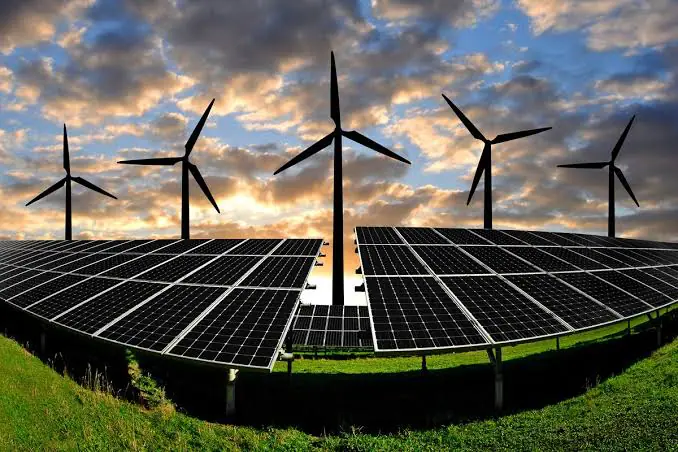Prof. Eli Bala, Director General of the Energy Commission of Nigeria (ECN), believes that shifting away from high-carbon energy sources and toward low-carbon energy sources will benefit Nigeria’s energy sector.
Bala told the News Agency of Nigeria (NAN) in an interview on the sidelines of the ECN Quarterly Energy Lecture Series on Thursday in Abuja that the transition will benefit Nigeria.
He stated that the transition must be handled carefully and fairly in the country for the benefit of all Nigerians.
“First, we must recognize that we require energy for development, as well as electricity at a reasonable cost and with high reliability.
“We need energy for transportation, industrialization, and commercial activities, but the question is how we do it?” Bala asked
He noted that, according to the Petroleum Industry Act (PIA), natural gas is a transition fuel that the current administration places a high priority on, and that it must be developed alongside other renewable energy sources.
The ECN CEO explained that Nigeria has the resources, but developing renewables, which include biomass and hydropower, among other things, must be done with energy-efficient technology.
According to Bala, Nigeria is capable of developing biofuel or bioethanol, which is a fuel substitute also known as Premium Motor Spirit, in order to reduce carbon emissions.
He stated that Nigeria could also develop a biofuel substitute for diesel fuel for use in heavy duty machines and equipment.
As a result, he stated that biofuel is gaining popularity around the world as a direct replacement for diesel fuel in diesel engines.
All of this, he said, would be possible through the continuous development of Nigeria’s agricultural sector.
“Agriculture employs a large number of people; we can mechanize agriculture and ensure that more people produce the much-needed carbon nitride, biofuel, bioethanol, and biodiesel.”
“All of these options are available; in fact, the National Energy Policy emphasizes the need for a broader energy mix based on the energy resources available in this country,” Bala said.
He insisted that human capacity development was critical to achieving the desired results.
He stated that human capacity development was critical not only for the energy transition but also for the nation as a whole.
Bala emphasized the importance of creating an enabling environment with an educational system that encourages creative thinking in order to develop the capacity of Nigerians.
According to him, with this in place, Nigeria will be able to solve all of its problems internally.
He stated that the ECN Quarterly Lecture Series was one of the commission’s mandates.
“The law that established the Energy Commission empowers it to produce strategic plans and coordinate national policies in the field of energy in all of its ramifications, but we realized we couldn’t do it alone.”
He stated that the lecture series began this year in order for members of the commission’s staff as well as management staff to gain knowledge in the entire spectrum of the energy sector.
“So we invited academics, industry experts, and government officials to tell us more about current issues because the only way to plan is to have in-depth knowledge of the sector.”
Prof. Wumi Iledare spoke on Developing Strategies for Nigeria’s Energy Transition, and Elder Boma Benebo spoke on Financing Options for Renewable Energy in Nigeria.
